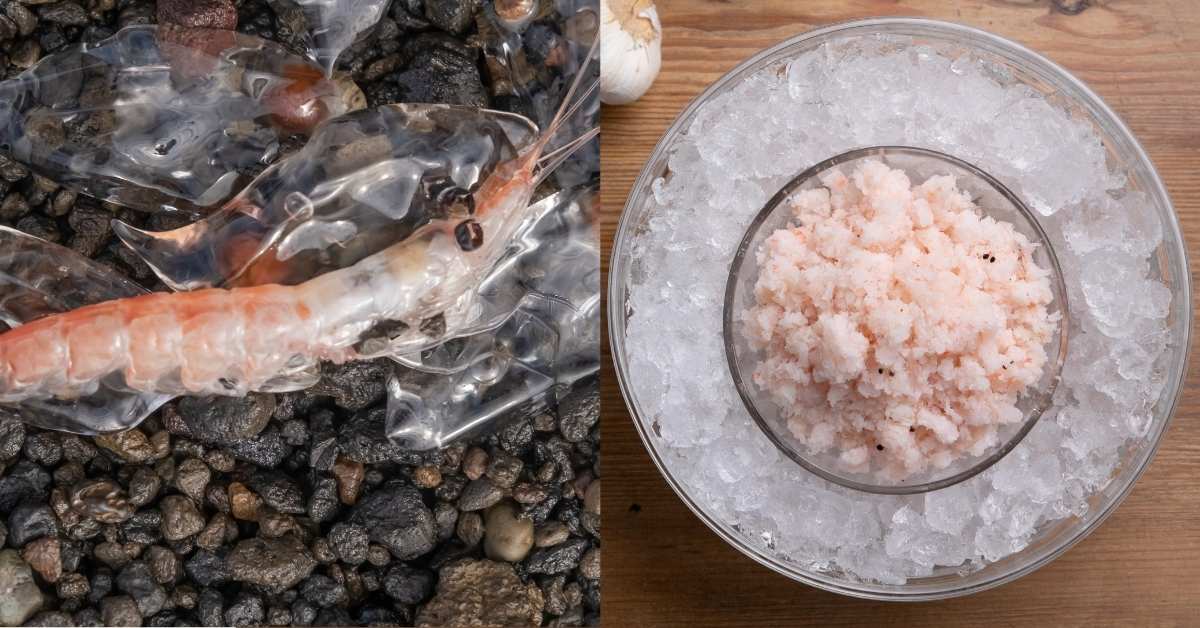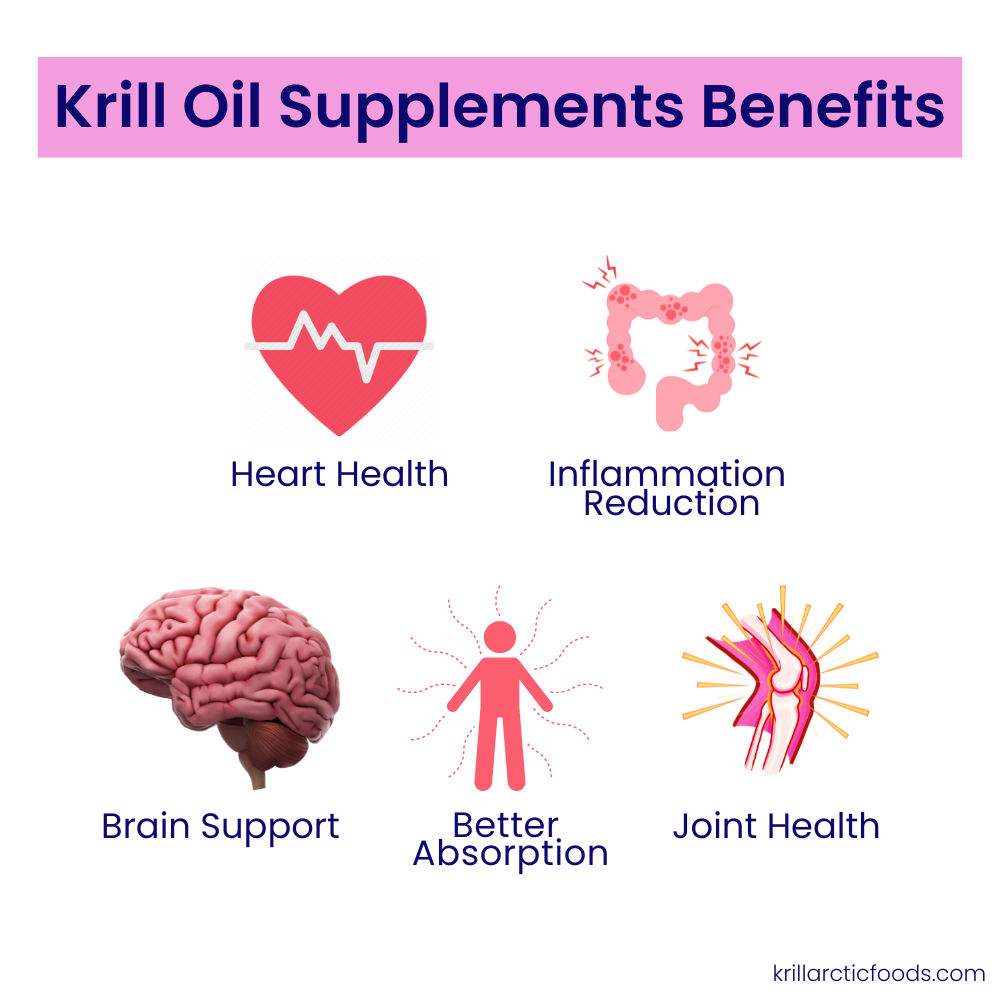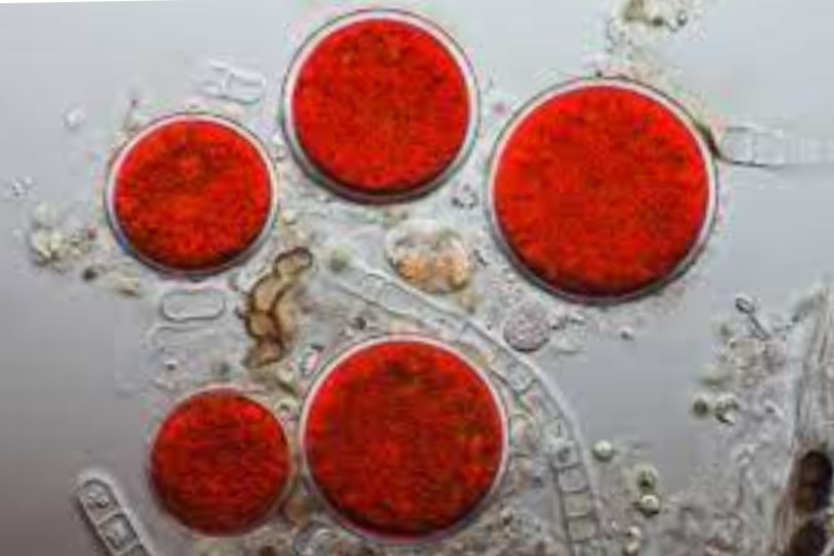Imagine you’re looking for a natural way to improve your heart health, boost your energy, or even add more sustainable foods to your diet. You’ve heard of fish oil, but there’s another rising star—Antarctic krill. These tiny creatures, found in the cold waters of the Southern Ocean, are making waves in health, nutrition, and environmental industries alike. But what exactly is Antarctic krill used for?
Antarctic krill isn’t just important for marine life—it’s becoming a key ingredient in human supplements, animal feed, and even skincare products. Rich in Omega-3s, protein, and antioxidants, krill is being used to support heart health, reduce inflammation, and improve overall wellness. In fact, studies show krill oil is easier for the body to absorb than other fish oils, making it a preferred choice for many.
In this article, we’ll dive into the many ways Antarctic krill is used and why it’s gaining popularity across multiple industries. Whether you’re curious about its health benefits or how it supports sustainable practices, you’ll find the answers here.
What is Antarctic Krill
Antarctic krill (*Euphausia superba*) is a small, shrimp-like crustacean found in the cold waters of the Southern Ocean, around Antarctica. Despite their tiny size, krill play a huge role in the marine ecosystem, serving as a primary food source for whales, seals, penguins, and fish. These krill are at the base of the ocean’s food chain, making them essential for sustaining marine life.
In recent years, krill has also become valuable to humans, particularly for its nutritional benefits like Omega-3 fatty acids and antioxidants. Krill harvesting is managed through strict sustainability practices, ensuring that their populations remain healthy and that marine ecosystems aren’t disrupted.
Organizations like the Commission for the Conservation of Antarctic Marine Living Resources (CCAMLR) regulate krill fishing to protect this vital resource while allowing industries to benefit from it responsibly.
How Do Humans Use Krill?
Humans use krill in several innovative ways, each offering distinct health and nutritional benefits.
The most common use is in krill oil supplements, a powerhouse of Omega-3 fatty acids. These fatty acids are crucial for supporting heart health, reducing inflammation, and improving cognitive function. Krill oil’s natural structure allows it to be more easily absorbed than fish oil, making it a smarter choice for those seeking effective results.
Krill meat, while lesser known, is a highly nutritious food option. Rich in protein and antioxidants like astaxanthin, it provides a low-calorie, high-nutrient alternative to traditional seafood. The antioxidant content helps combat oxidative stress in the body, which can lower the risk of chronic diseases.
Beyond human consumption, krill plays a vital role in animal feed, particularly in aquaculture. Krill meal boosts the health of farmed fish, improving their growth and quality. Additionally, it’s found in premium pet food, where it promotes a healthy coat and supports joint health in pets.
Krill in Human Nutrition
Antarctic krill provides significant health benefits through both krill meat and krill oil supplements. Krill is not only a rich source of lean protein but is also packed with Omega-3 fatty acids, which are essential for heart and brain health. Incorporating krill into your diet can be a game changer for those looking to boost their overall wellness naturally and sustainably.
Is It Good to Eat Krill?
Yes, krill is an excellent choice for human consumption due to its impressive nutritional profile. Krill meat is a nutrient-dense, lean protein source, making it ideal for those looking to maintain or improve their health through diet. It’s rich in Omega-3 fatty acids, particularly EPA and DHA, which are known for supporting heart and brain health.
Omega-3s help reduce inflammation, lower triglyceride levels, and promote cognitive function, making krill a powerhouse for cardiovascular wellness and mental clarity.
Beyond that, krill contains essential amino acids that support muscle growth and repair, making it a great option for active individuals or those focused on maintaining lean muscle.
Krill Oil Supplements Benefits:
- Heart Health: Krill oil helps lower bad cholesterol (LDL) and raise good cholesterol (HDL), supporting better cardiovascular health.
- Inflammation Reduction: The Omega-3s in krill oil are highly bioavailable, which makes them effective in reducing inflammation throughout the body, including joints.
- Brain Support: EPA and DHA found in krill oil are known to improve cognitive function and may reduce the risk of cognitive decline.
- Better Absorption: Krill oil’s phospholipid-bound Omega-3s make it easier for the body to absorb compared to traditional fish oil, making it more effective at lower doses.
- Joint Health: Regular use of krill oil has been shown to reduce stiffness and improve mobility in people with arthritis.
Krill for Animal Nutrition
Krill has become a go-to ingredient in animal nutrition due to its dense nutrient profile, making it an ideal addition to feeds across various industries. Its rich Omega-3 content, protein, and antioxidants deliver targeted benefits for aquaculture, pet food, and livestock feed.
Aquaculture Feed
In fish farms, krill meal serves as a natural, nutrient-rich feed that provides high-quality protein and essential Omega-3 fatty acids. These nutrients are critical for the health of farmed fish, improving immune response, promoting steady growth, and enhancing the overall quality of the fish.
The natural antioxidant astaxanthin found in krill meal improves the pigmentation of fish like salmon, giving them a vibrant, market-ready appearance. For fish farmers, this translates into healthier stock and higher-quality products, both of which boost profitability and sustainability.
Pet Food
Krill oil and meal are used in premium pet foods for their ability to support joint health and enhance coat quality. The high levels of Omega-3s help reduce inflammation, making krill particularly beneficial for older pets with joint issues. Additionally, the astaxanthin in krill provides antioxidant protection, helping pets maintain a healthy immune system.
For pet owners looking for ways to improve their pets’ overall well-being, products with krill ingredients offer a natural, effective solution.
Livestock Feed
Krill meal is a nutrient-rich supplement that boosts livestock and aquaculture feed. What is krill meal made of?
Made by drying and grinding whole krill, it’s packed with high-quality protein, Omega-3 fatty acids (EPA and DHA), and astaxanthin, a powerful antioxidant. These components enhance animal health, promote faster growth, and improve feed conversion efficiency.
For livestock, especially poultry, and in aquaculture, krill meal supports immune function, muscle development, and overall well-being. Omega-3s also enhance the nutritional quality of farmed seafood, while astaxanthin improves fish color and marketability. By using krill meal, farmers achieve more sustainable, productive farming with healthier, higher-quality animals.
Krill’s powerful nutritional profile makes it a valuable asset in animal nutrition, offering a sustainable, natural way to enhance feed quality and support the health of a wide range of animals.
Pharmaceutical and Cosmetic Uses of Krill
Krill oil has become a key ingredient in both pharmaceuticals and cosmetics, providing practical benefits that go beyond just supplements. It’s packed with Omega-3s and antioxidants, which deliver noticeable results for health and beauty alike.
Pharmaceutical Uses
Krill oil is well-known for its role in supporting joint health. If you deal with joint stiffness or pain, particularly from arthritis, krill oil can help. Its Omega-3 fatty acids work to reduce inflammation, making movement easier and more comfortable. Krill oil also shines when it comes to heart health. It helps lower bad cholesterol (LDL) while raising good cholesterol (HDL), keeping your heart in better balance. Additionally, it reduces triglycerides and supports overall cardiovascular function, which lowers the risk of heart disease.
Cosmetic Uses
In cosmetics, krill oil helps with skin hydration and anti-aging. The antioxidant astaxanthin protects your skin from environmental damage, while Omega-3s help keep it moisturized. This dual action improves skin elasticity, making it look smoother and more youthful. If you’re after glowing, hydrated skin, krill oil can give your routine a natural boost.
Whether it’s supporting joint mobility, heart health, or radiant skin, krill oil is a powerful and trusted choice that works from the inside out to improve your overall well-being.
How to Choose Krill Products
Finding the right krill product doesn’t have to be complicated. The key is knowing what to look for so you get the best quality for your health and the environment. Here are a few simple tips to guide you:
- Check for Certifications: Look for krill products that have been certified by the Marine Stewardship Council (MSC) or Friend of the Sea. These certifications ensure that the krill is harvested sustainably, protecting marine ecosystems while maintaining the highest product standards.
- Know the Source: Make sure the krill is sourced from the Southern Ocean around Antarctica. Krill from this area is prized for its rich Omega-3 content, antioxidants, and superior purity.
- Look for Purity: For krill oil supplements, choose products with phospholipid-bound Omega-3s. This means the Omega-3s are more easily absorbed by your body, ensuring you get the most benefit. Always check that the product is free from harmful additives and heavy metals.
- Support Sustainability: By choosing krill products that prioritize eco-friendly practices, you’re not only boosting your health but also contributing to the health of the planet. It’s a win-win!
If you’re ready to try krill for yourself, consider krill meat from our store. Packed with Omega-3s, protein, and antioxidants like astaxanthin, it’s a nutritious, sustainable choice that can easily be incorporated into your diet. Make a smart, healthy choice today and discover the benefits of premium Antarctic krill!
FAQs
What is Antarctic krill used for?
Antarctic krill is used in human supplements, animal feed, and cosmetics. It’s rich in Omega-3s, antioxidants, and protein, which support heart health, reduce inflammation, and improve overall wellness.
Is krill good for human health?
Yes, krill is excellent for human health. Krill oil is rich in Omega-3s that support heart and brain health, while krill meat provides lean protein and antioxidants, making it a nutrient-dense food choice.
How is krill meal used in animal feed?
Krill meal is a high-protein feed ingredient used in aquaculture, pet food, and livestock feed. It enhances the growth, health, and quality of farmed fish, improves coat health in pets, and promotes faster growth in poultry.
What makes Antarctic krill superior?
Antarctic krill is superior due to its high content of Omega-3s, astaxanthin, and protein, along with sustainable harvesting practices regulated by the Commission for the Conservation of Antarctic Marine Living Resources (CCAMLR).
Conclusion
Antarctic krill is an incredibly versatile and beneficial resource. From supporting human health with its rich Omega-3s, antioxidants, and protein to improving the well-being of pets and farm animals through krill meal, this tiny crustacean packs a powerful punch. Its role in pharmaceuticals and cosmetics further highlights its value, offering natural ways to enhance joint health, heart function, and skin vitality.
If you’re looking to boost your nutrition or care for your pets in a more sustainable way, consider trying krill products. Explore our high-quality krill meat for a nutrient-packed addition to your meals and experience the health benefits firsthand. Make the switch to krill and invest in your well-being today!










